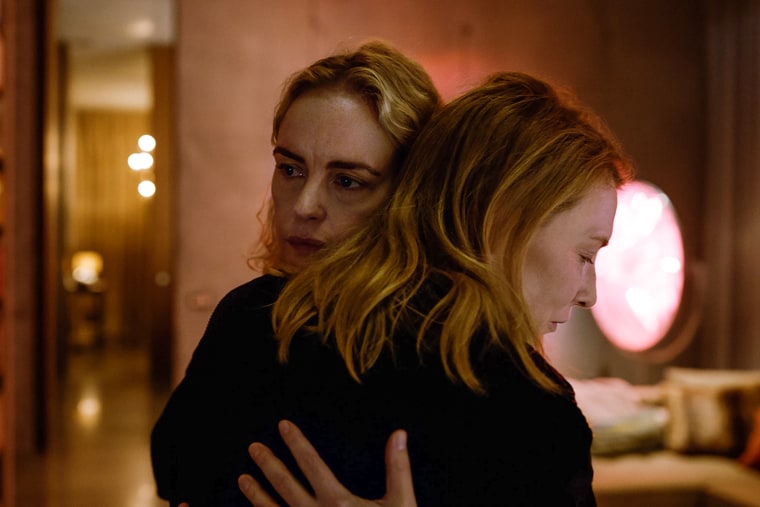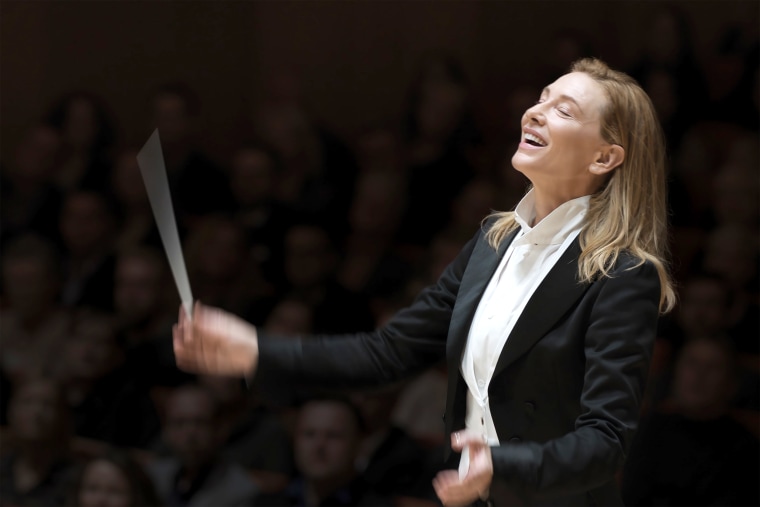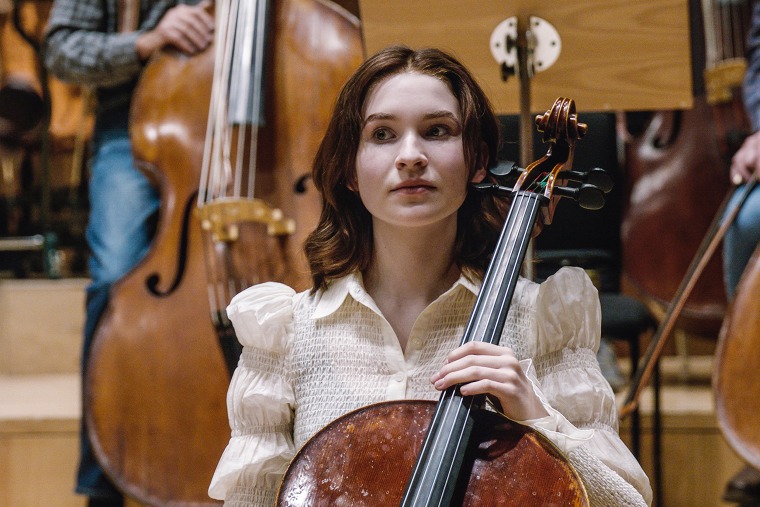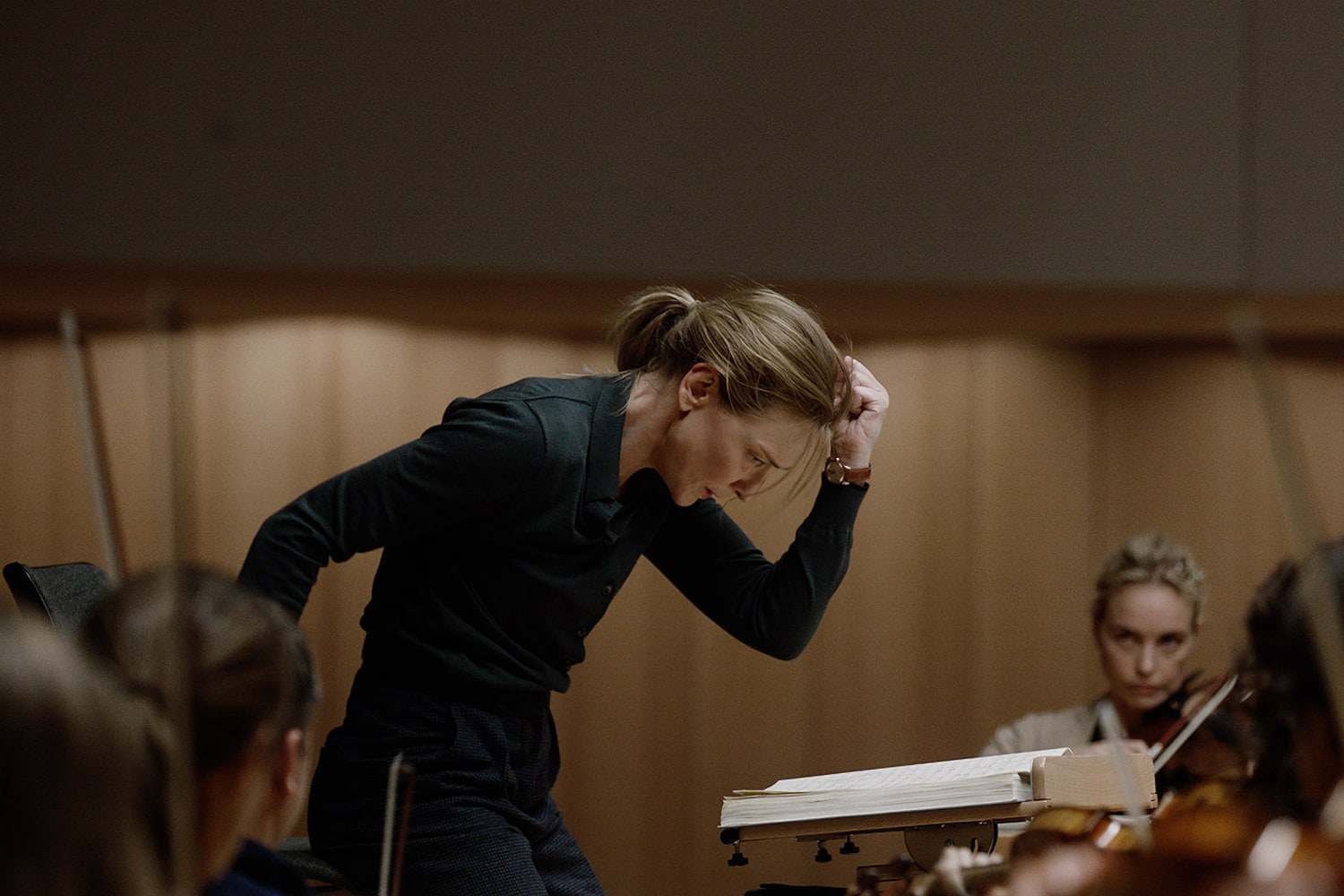Since Todd Field’s newest masterwork, “TÁR,” had its world premiere at the Venice Film Festival in early September, the filmmaker and his stars have shared a common message during interviews: It’s cinema’s job to pose difficult questions, but it’s the audience’s responsibility to answer them. The questions asked in “TÁR” — sprinkled through its nearly three-hour runtime — center on power dynamics, cancel culture and complicity.
Field’s titular character, Lydia Tár (Cate Blanchett in a tour de force), is a fictional, world-renowned orchestra conductor with a penchant for power trips and younger women. She’s also the first woman to take the stage as principal conductor of the Berlin Philharmonic, and, thanks to this hard-won success, she has managed to evade any serious repercussions for her morally questionable habits — at least when the film begins. As the exquisitely suited, elegantly coiffed conductor soon finds out, all good things must come to an end and always at the most inopportune times.
With her wife and the orchestra’s first violin, Sharon (Nina Hoss), by her side, Lydia is preparing for a history-making performance of Mahler’s Fifth Symphony and the launch of her memoir, “Tár on Tár,” when things begin to take a downturn. It begins with a few discordant encounters — giving an affected performance at a Q&A with New Yorker writer Adam Gopnik, openly flirting with young accolades, humiliating a student during a masterclass at Juilliard — but reaches a crescendo when her dealing with a former protege, Krista Taylor (Sylvia Flote), becomes a full-on scandal.

As things begin to devolve, Lydia doesn’t do herself any favors. She’s not interested in exploring her stance on identity politics — or any other topic. She takes an outsize interest in the orchestra’s attractive new cellist, Olga (newcomer Sophie Kauer), which puts her at odds with the other players during a crucial point in rehearsals. And she goes as far as asking her assistant, Francesca (Noémie Merlant) — who the audience understands to be another former flame — to destroy evidence of her relationship with Krista.
As Lydia overplays her hand, and her personal life and professional success progressively implode, the film does an impressive job of withholding judgment and instead poses a series of questions to the viewer, beginning with: When does power use become power abuse?
Watching the film, which is Field’s first since “Little Children,” released 16 years ago, viewers have to consider how they themselves are reflected in their answers to these questions, including at what point they consider someone’s actions to be irredeemable (or cancel-worthy)? And, perhaps most importantly, whether they judge Lydia’s actions differently because she’s a woman, or a gay woman, or a powerful woman.
“Some of the questions that the film is trying to ask have been questions that I’ve been asking myself for several years and trying to find the language to … which I felt like I was failing miserably,” Field said in an interview with Reuters. “And I felt like I was having a hard time finding that language from other people.”

Blanchett told USA Today that she was drawn to how the film “doesn’t allow the audience to sit in easy judgment of the characters.” She also noted that it has been the hardest film for her to “reduce to some digestible sound bite.”
“It’s an examination of the corruptive nature of power in all its forms, but it’s also about so many other things,” she said. “It’s rare to see a film that has genuinely big questions. And it respects the audience enough to ask them.”
When asked by NBC News what she hopes viewers take away from “TÁR,” Hoss — an accomplished German actor and auteur muse — said she hopes “a conversation starts.”
“That was my personal experience seeing the film, that I wanted to talk about it, because what I find so beautiful about it also is that there is no real judgment,” she said. “The director or the actors in it don’t interpret it for you. You just experience this ride of Lydia Tar and her multifaceted personality and along this ride, you kind of feel what surrounds us right now, the discussions we’re all in, and you try to put yourself into that perspective, and I think that’s what makes you want to talk about it, because you come out of it with a lot of great questions.”
Kauer, a professional cellist making her first on-screen appearance, told NBC News that Field “asks a lot of questions that people are too afraid to ask.” And while “TÁR” is set in the world of classical music, it “could be set in any industry,” she added.
Sexuality ‘not an issue’
Notably, although the film is essentially a character study of a complicated woman whose choices — to whatever degree the audience believe she’s culpable — lead to her unraveling, the stars have also taken the line that the protagonist’s gender and sexuality are not as important to the story as one might think.
“Strangely, I didn’t think about the character’s gender, nor her sexuality at all — at all,” Blanchett said during a news conference following the film’s debut in Venice. “I think I love that about the film. It just is. It’s a very human portrait, and I think we have perhaps matured enough as a species that we can watch a film like this and not make that the headline issue.”
Blanchett added, in a widely quoted moment, that she’s “not interested in agitprop,” meaning the advertisement of politicized ideas through art, and that while there are “a lot of hot-button topics” that come up in the film, it’s “not about any of those things. They’re plot devices; they’re texture.”

When asked by NBC News how, if at all, the film would be different if the title character were a straight male conductor, Hoss and Kauer had similar responses.
“The fact that this is not a heterosexual relationship is not even a question,” Kauer said, echoed by Hoss.
“It’s just what it is. They’re a couple. They’re together, and they have a child,” Hoss said of the characters played by her and Blanchett. “By telling it that way, it hopefully becomes very normal.”
While the fact that Lydia is a gay women might not be the thing, it is a thing, and a very important one in how the film works to challenge its viewers. Had Lydia been a male conductor, for instance, it would be perhaps much easier or more natural to make conclusions about her actions and her motivations, especially in the post-MeToo world. But Field isn’t interested in easy answers.
Throughout the film, Field subtly informs the audience about Lydia’s past aspirations and present achievements, including being a Harvard-educated EGOT (winner of an Emmy, Grammy, Oscar and Tony), going to significant lengths to create a complex and difficult-to-judge character. He then places her in a world populated by women, who are all jockeying for a piece of the maestro — and her power.
Follow NBC Out on Twitter, Facebook & Instagram.
Source: | This article originally belongs to Nbcnews.com









